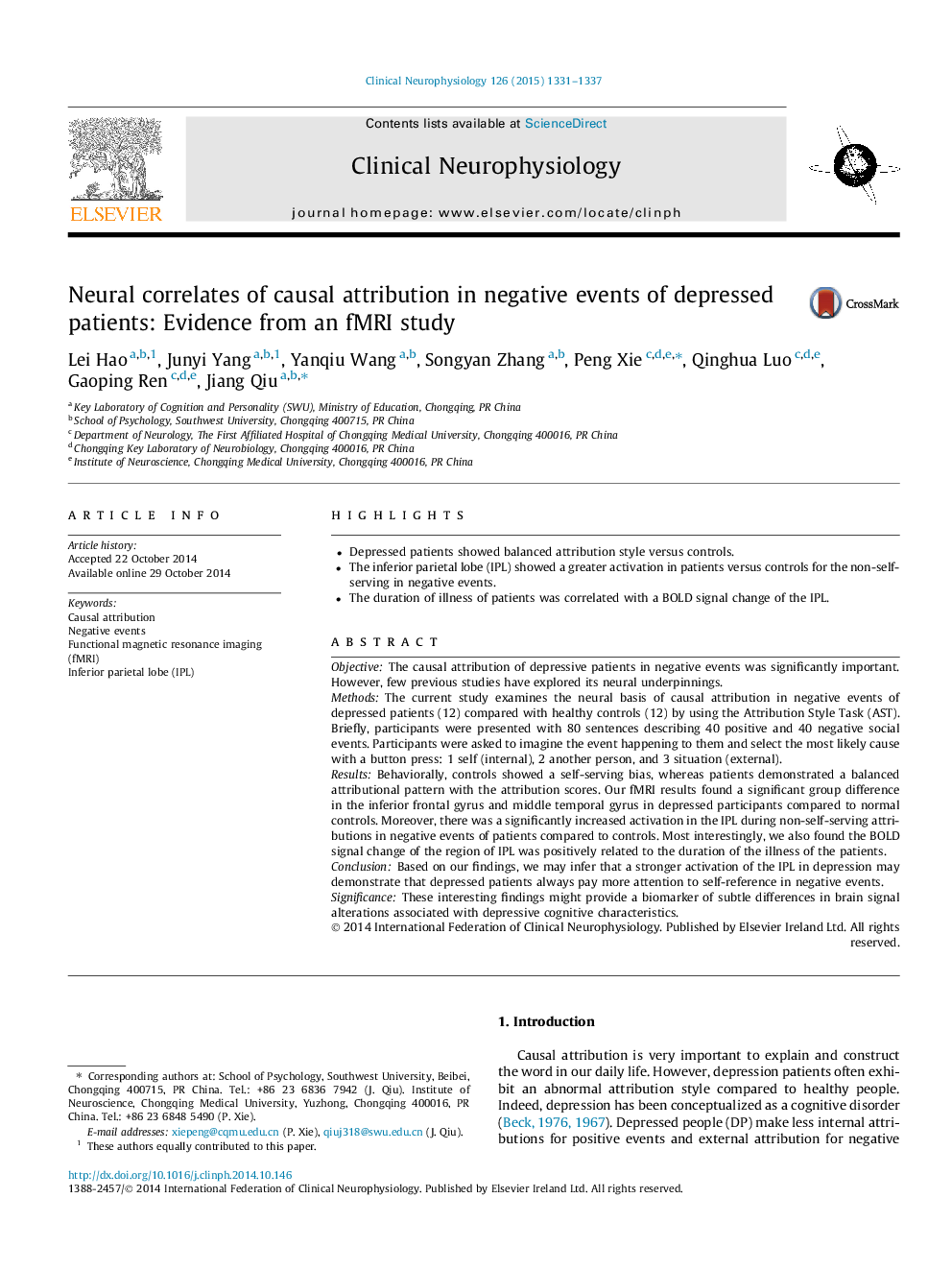| Article ID | Journal | Published Year | Pages | File Type |
|---|---|---|---|---|
| 6007720 | Clinical Neurophysiology | 2015 | 7 Pages |
â¢Depressed patients showed balanced attribution style versus controls.â¢The inferior parietal lobe (IPL) showed a greater activation in patients versus controls for the non-self-serving in negative events.â¢The duration of illness of patients was correlated with a BOLD signal change of the IPL.
ObjectiveThe causal attribution of depressive patients in negative events was significantly important. However, few previous studies have explored its neural underpinnings.MethodsThe current study examines the neural basis of causal attribution in negative events of depressed patients (12) compared with healthy controls (12) by using the Attribution Style Task (AST). Briefly, participants were presented with 80 sentences describing 40 positive and 40 negative social events. Participants were asked to imagine the event happening to them and select the most likely cause with a button press: 1 self (internal), 2 another person, and 3 situation (external).ResultsBehaviorally, controls showed a self-serving bias, whereas patients demonstrated a balanced attributional pattern with the attribution scores. Our fMRI results found a significant group difference in the inferior frontal gyrus and middle temporal gyrus in depressed participants compared to normal controls. Moreover, there was a significantly increased activation in the IPL during non-self-serving attributions in negative events of patients compared to controls. Most interestingly, we also found the BOLD signal change of the region of IPL was positively related to the duration of the illness of the patients.ConclusionBased on our findings, we may infer that a stronger activation of the IPL in depression may demonstrate that depressed patients always pay more attention to self-reference in negative events.SignificanceThese interesting findings might provide a biomarker of subtle differences in brain signal alterations associated with depressive cognitive characteristics.
